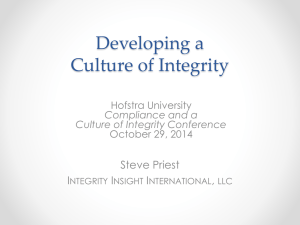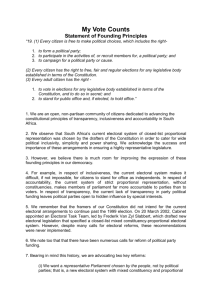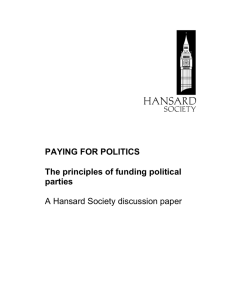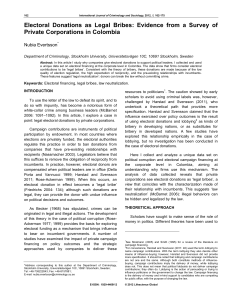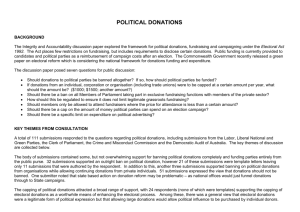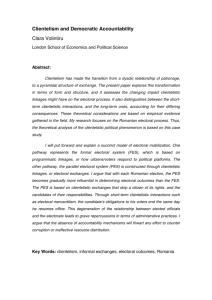Townsville Forum summary
advertisement
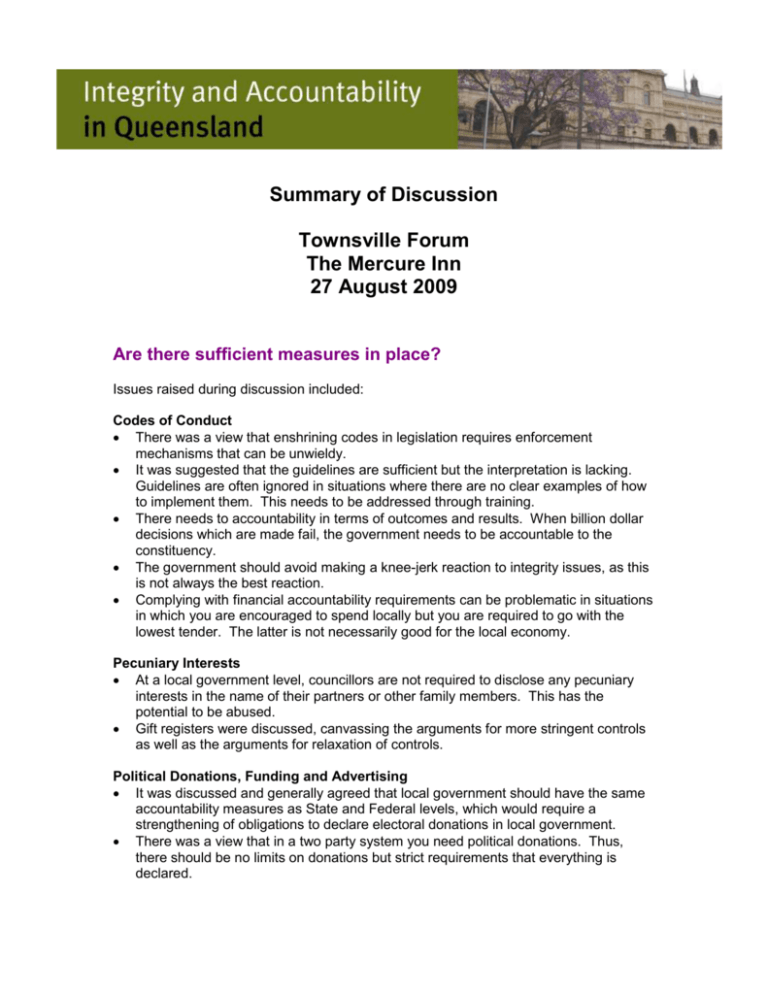
Summary of Discussion Townsville Forum The Mercure Inn 27 August 2009 Are there sufficient measures in place? Issues raised during discussion included: Codes of Conduct There was a view that enshrining codes in legislation requires enforcement mechanisms that can be unwieldy. It was suggested that the guidelines are sufficient but the interpretation is lacking. Guidelines are often ignored in situations where there are no clear examples of how to implement them. This needs to be addressed through training. There needs to accountability in terms of outcomes and results. When billion dollar decisions which are made fail, the government needs to be accountable to the constituency. The government should avoid making a knee-jerk reaction to integrity issues, as this is not always the best reaction. Complying with financial accountability requirements can be problematic in situations in which you are encouraged to spend locally but you are required to go with the lowest tender. The latter is not necessarily good for the local economy. Pecuniary Interests At a local government level, councillors are not required to disclose any pecuniary interests in the name of their partners or other family members. This has the potential to be abused. Gift registers were discussed, canvassing the arguments for more stringent controls as well as the arguments for relaxation of controls. Political Donations, Funding and Advertising It was discussed and generally agreed that local government should have the same accountability measures as State and Federal levels, which would require a strengthening of obligations to declare electoral donations in local government. There was a view that in a two party system you need political donations. Thus, there should be no limits on donations but strict requirements that everything is declared. There was a broad view that public support for wholly publicly funded elections is not realistic at this stage. It was suggested that in considering this issue, the cost of a publicly funded election should be put to the public to see if we want to pay that much. In relation to donations, it was stated that there is nothing wrong with people donating to political parties. It’s fair that people should be able to support parties that advocate for their views. It was also put forward that limiting the forms of media in which parties can advertise would be an undesirable limitation on an accessible avenue of political expression. There was broad discussion of the idea that all political parties would benefit from a cap on the amount of money that could be spent in an election campaign, so long as it was set at a workable figure. It was thought that this might also encourage a better style of campaigning. It was put forward that any reforms aimed at making electoral process more accountable would have to address the advantage held by incumbent parties through their ability to employ government resources to sell their agenda prior to the calling of an election. Fixed Terms There was general agreement that fixed terms are necessary to achieve better decision making and an electoral system of maximum accountability. The length of the fixed term was discussed with four years being agreed as the desirable figure. Lobbying A view was expressed that public office is there to serve the public and professional lobbying invites corruption of this principle. It was suggested that people will find a way around a ban on success fees by writing up the invoice in another way. There was a general exposition of an agreed view that, in a regional context, the use of lobbyists undermines the representative system. Once a party employs people to lobby George Street in relation to a regional concern, the ability of local members to represent the interests of their constituents is undermined. This was seen as undesirable, as local members best understand the needs of the local community and are the best advocates for its interests. It was further stated that if people employ Brisbane lobbyists and it results in a bad decision being made in relation to regional Queensland, the blame for the bad decision making will attach to the government and not the local member. It is therefore in everybody’s interests to encourage a system where local members are the primary advocate of local interests. Are the mechanisms to find unacceptable behaviour sufficient? Issues raised during discussion included: Whole of Public Sector Accountability It was suggested that in situations where agencies are pursuing policies with adverse results, there needs to be transparency measures which allow the community to call agencies to account and address the lack of results. Oversight Bodies There was a view that oversight bodies are probably doing a good job but it may be difficult for the public to work out which body to go to. A service which would provide assistance may help. Concern was expressed over the Crime and Misconduct Commission’s practice of referring complaints back to an agency to investigate and the self-investigation this can result in. It was suggested CMC should have jurisdiction over Government-owned corporations unless it stifles their competitive nature There was general agreement that whistleblowing protection is essential to democracy. Are the sanctions sufficient? Issues raised during discussion included: Police Disciplinary Procedures There was a view that addressing the transparency of police disciplinary procedures is very important. The Townsville region has had a lot of major incidents and there are still a lot of unresolved questions in the community about the transparency of the police conduct and disciplinary procedures. It was further agreed that police are rarely praised and any approach needs to bear that in mind. Positive reinforcement needs to be considered in relation to any reforms.



